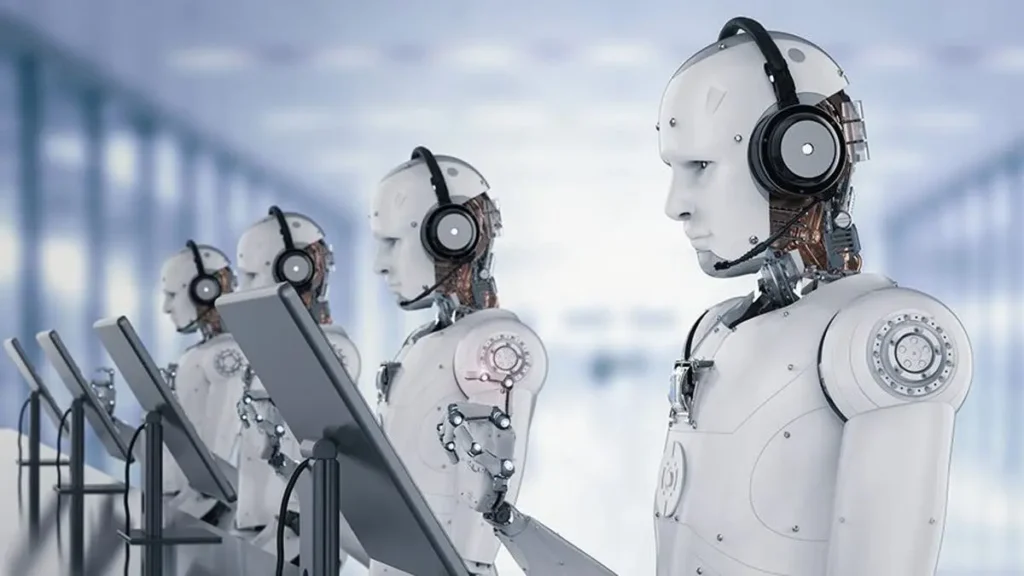Artificial intelligence (AI) is no longer a futuristic idea it’s here, shaping industries, streamlining workflows, and challenging the security of human employment. The latest Microsoft study takes this debate further.
Shedding light on the jobs most at risk from AI by analyzing real world data from thousands of employees using AI tools. Unlike earlier predictions that were based on theoretical modeling, Microsoft’s findings reveal what is already happening in the workplace and what the future may hold.
Previous reports about automation often relied on estimates or speculative modeling. Microsoft, however, analyzed 200,000 anonymous Copilot conversations from 2024 and matched them with the US government’s official job classification system.
The outcome paints a clearer picture of AI’s growing impact. Entire occupational groups, including computer and mathematical occupations and office and administrative support, show high overlap with AI. On the other hand, professions requiring hands on labor, empathy, or creativity remain relatively safer.
The Jobs Most at Risk from AI
1. Computer and Mathematical Roles
Ironically, the very people building AI software developers, data analysts, and coders are seeing disruption. Generative AI can now write code, debug errors, and analyze data at lightning speed.
While this doesn’t mean programmers are obsolete, it does reduce reliance on junior developers handling repetitive tasks.
Ethan Mollick, professor at Wharton, noted, AI won’t replace programmers, but it will replace programming as we know it. The new role of coders will be less about syntax and more about orchestration and problem solving.
2. Office and Administrative Support
Administrative assistants, clerks, and data entry specialists face some of the highest exposure. AI systems can now schedule meetings, summarize documents, and handle repetitive reporting, often faster than humans.
A mid sized law firm in New York adopted Microsoft Copilot for document formatting and scheduling. Within six months, administrative tasks dropped by 40%, and the firm reduced its need for entry level clerical hires.
3. Business and Financial Operations
Financial analysts, auditors, and consultants are increasingly leveraging AI for predictive modeling and trend analysis. This lowers the need for large teams, as AI handles core calculations while humans focus on strategy.
4. Legal Services
Paralegals and junior associates are vulnerable as AI driven platforms can draft contracts, analyze legal precedents, and even prepare courtroom arguments. While senior attorneys still provide judgment and nuance, entry level roles face significant pressure.
5. Media, Writing, and Design
Journalists, copywriters, and designers are also on the frontline. Generative AI tools can create news summaries, blog posts, marketing visuals, and video scripts. While AI is strong in volume and speed, humans retain the edge in storytelling, emotion, and brand voice.
Jobs Less Affected by AI
While many fields face change, the study found that not all professions are equally exposed. Jobs requiring physical skills, emotional intelligence, or cultural sensitivity are far less impacted.
Healthcare providers (nurses, therapists, caregivers) rely on human empathy. Skilled trades (plumbers, electricians, carpenters) demand practical on site problem solving.
Creative leadership roles rely on vision and strategy that AI still struggles to replicate. The risk comes down to task automation. Jobs heavily reliant on structured, repetitive, or data driven work are the jobs most at risk from AI.
These tasks can be replicated by algorithms with speed and accuracy. By contrast, roles that thrive on human uniqueness empathy, innovation, or adaptability remain safer.
It’s important to remember that AI is not only replacing jobs it’s reshaping them. According to the World Economic Forum, AI may displace 85 million jobs by 2025 but create 97 million new ones. The bigger challenge lies in helping workers adapt quickly enough to take advantage of new opportunities.
Satya Nadella, CEO of Microsoft, has said, AI is not here to take jobs away it’s here to take away drudgery. The real test is whether we can adapt our skills fast enough.
Working Alongside AI
As a content creator, I’ve experienced firsthand how AI changes the workflow. Drafting a 1,000 word article once took several hours; now, AI tools help generate outlines, research support, and grammar suggestions within minutes.
Rather than replacing my role, AI has shifted my focus toward storytelling, editing, and personalizing content areas AI still struggles with. Similarly, a friend working in finance explained.
How AI tools have automated his Excel reporting. Instead of spending hours crunching numbers, he now devotes time to client strategies and high value decisions. These experiences underline a central truth, while tasks may be automated, the broader roles can evolve into something more valuable.
For professionals in the jobs most at risk from AI, survival depends on adaptability. Workers should embrace AI literacy, data science, and critical thinking skills to remain relevant.
Skills like leadership, communication, and empathy are areas where humans still outperform machines. Instead of resisting, employees should view AI as a co-pilot that augments productivity rather than an adversary.
AI is creating demand for roles in AI ethics, digital trust, machine training, and human AI collaboration. Workers who anticipate these shifts will thrive.
Coexistence, Not Replacement
Microsoft’s study highlights an undeniable truth the jobs most at risk from AI are already experiencing disruption. Occupations in tech, administration, law, finance, and media are at the forefront of automation, while healthcare, trades, and creative leadership remain less affected.
Yet the story is not just about job loss it’s about job transformation. The professionals who adapt, reskill, and embrace AI collaboration will not only survive but also prosper in the new era.
AI is not here to erase human potential it’s here to amplify it. The question is not Will AI take our jobs? but How can we use AI to build better ones?

